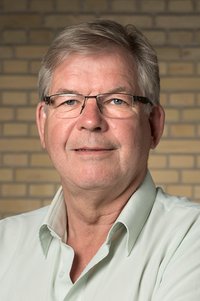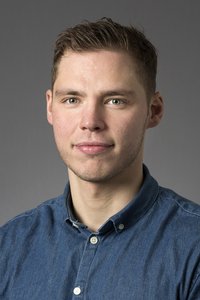- Education
-
Research
Current research
Talent
-
Collaboration
Businesses
Government agencies and institutions
Alumni
-
About AU
Organisation
Job at AU
All weekly Master’s lectures on the medical degree programme must be rethought so that they can re-emerge in February 2019 as modern forms of instruction. All clinical professors will therefore be invited to inspiration meetings in April that will be followed by help from CESU with the practical aspects.
2018.03.22 |

"Most of us will only take on a cumbersome and time-consuming task when our backs are against the wall. That’s where we are now! So it’s a question of making good, long-lasting decisions," says Kristjar Skajaa.

Even though the goal of inclusive and activating theoretical teaching is already in place, the road to this goal is open. As Christian Ravn Olesen emphasises, the teaching staff are the experts here.
When the medical students meet up for lectures on the Master’s degree programme in February 2019, the teaching they meet will be far more based on techniques and tools that support blended learning and flipped classroom. At the same time, in the clear majority of cases, fewer students will be taught at once.
This is the result of the Department of Clinical Medicine abolishing the weekly lectures where 220 Master’s degree students sit crowded together from 8:00-15:00. These lectures will stop at the end of 2018.
"We've talked about new forms of instruction for years, and the reorganisation has so far been characterised by a lot of progress in some places, for example with the use of video in combination with dialogue-based teaching and discussion. Elsewhere people have hardly begun at all, perhaps because the central coordinating effort has been missing. But that is coming now because of both internal and external pressure," says Department Head Kristjar Skajaa.
The external pressure is the logistics which will change decisively with the relocation from Nørrebrogade. From the turn of the year, there is only lecture theatre A in Skejby with room for the whole class, and none of the semesters during the Master’s students six semesters will have permanent claim to this lecture theatre, as it is also required for medical conferences and events organised by AUH. The internal pressure is the students' continual input to the evaluations, which points towards long passive days in the auditorium sending them to sleep:
"A forty-five-minute session in a lecture theatre can easily work, even if the didactic element is given lower priority, but the students sit there all day long. We therefore need to collectively increase the amount of student-activating teaching and involvement in the teaching, which is also part of the university's overall EDU IT strategy," says Kristjar Skajaa.
The reorganisation starts on 6 April when all clinical professors, course managers and other course coordinators are invited to a workshop which will ensure a common qualified starting point. A series of workshops will follow in continuation of the initial workshop at which the course coordinators can work to implement the new decisions on a semester by semester basis.
One of the project coordinators, Christian Ravn Olesen, who is administrative officer at the Department of Clinical Medicine, stresses that the idea is most certainly not that 85 professors should learn to produce video from scratch:
"No one needs to deal with practical challenges by themselves. Conversely, of course it’s necessary for the professors together with the semester’s course managers to decide what the various courses should look like. So that when you are ready to, for example, produce video, we have an agreement with the professionals from CECU who can help with the practical aspects. And we have fitted out a video studio in the basement below the secretariat," says Christian Ravn Olesen.
Christian Ravn Olesen also mentions the possibility of involving e.g. PhD students, assistant professors or associate professors in the reorganisation process, which is distinguished by bringing everything from class size to teaching methods in the theoretical part into play. Even though the goal of inclusive and activating theoretical teaching is already in place, the road to this goal is open. As Christian Ravn Olesen emphasises, the teaching staff are the experts here.
"There is a Danish saying that goes something like: ‘We’re all guarding a gateway to change that can only be opened from the inside'. It is therefore also up to the individual to decide how much or how little needs to be revolutionised. Naturally, we hope that the teaching staff take on the task in the belief that everything is possible – except for the crowded lectures that we’re leaving behind – and that they therefore have a rare opportunity to test many different possibilities. We're trying to provide the best possible framework to do this," says Christian Ravn Olesen.
Department Head Kristjar Skajaa also encourages thinking differently while the opportunity is there. He notes that courses which have already been reorganised are getting excellent evaluations, while at the same time, the lecturers say they enjoy greater job satisfaction in the new teaching roles.
"Most of us will only take on a cumbersome and time-consuming task when our backs are against the wall. That’s where we are now! So it’s a question of making good, long-lasting decisions," says Kristjar Skajaa.
The reorganisation of the teaching on the Master's degree programme has been previously described in the articles From lectures to video, discussion and quiz (in particular about psychiatry) as well as Video adds a new dimension to the teaching (in particular about dermatology).
Head of Department Kristjar Skajaa
Department of Clinical Medicine
Mail: kristjar.skajaa@clin.au.dk
Tel: 78 45 90 00
Administrative Officer Christian Ravn Olesen
Department of Clinical Medicine
Mail: crol@clin.au.dk
Tel: 78 45 90 06